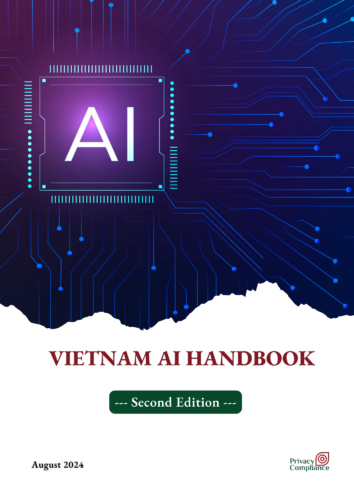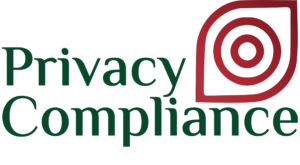Vietnam AI Handbook – Second Edition
In January 2024, PrivacyCompliance published the first version of the AI Handbook which was received warmly by the AI community and the general public. Since then, there have been many developments in the AI scene around the world such as new AI applications, and new regulations, with the most notable being the official publication of the EU AI Act. As such, we at PrivacyCompliance have been working on an update for the Handbook in order to keep readers up to date with the latest changes.
The new version of the Handbook retains and updates the main contents of the first version including a comprehensive overview of AI, accompanied by illustrative examples of presently prominent AI technologies, the applications and challenges posed by AI in the contemporary world, the diverse legal regulations governing AI on a global scale, complemented by notable legal case studies, and the existing state and challenges within the AI sector in Vietnam with insightful recommendations for the future.
We are confident that this updated version of the AI Handbook will be able to convey to the readers a thorough understanding of the current landscape of AI both globally and within Vietnam. As such, it is with great pride that we introduce to you PrivacyCompliance’s AI Handbook version 2.0. Should you be inclined, we sincerely hope you will allocate some time to peruse it.

Download here: Vietnam AI Handbook-second edition
#PrivacyCompliance #AIHandbook #2.0 #AI #EUAIAct #Update

𝗜𝗻𝘁𝗿𝗼𝗱𝘂𝗰𝗶𝗻𝗴 𝘁𝗵𝗲 “𝗕𝗶𝗼𝗺𝗲𝘁𝗿𝗶𝗰 𝗗𝗮𝘁𝗮 𝗶𝗻 𝗩𝗶𝗲𝘁𝗻𝗮𝗺” 𝗛𝗮𝗻𝗱𝗯𝗼𝗼𝗸 𝗯𝘆 𝗣𝗥𝗜𝗩𝗔𝗖𝗬𝗖𝗢𝗠𝗣𝗟𝗜𝗔𝗡𝗖𝗘
🚀 𝗜𝗻𝘁𝗿𝗼𝗱𝘂𝗰𝗶𝗻𝗴 𝘁𝗵𝗲 “𝗕𝗶𝗼𝗺𝗲𝘁𝗿𝗶𝗰 𝗗𝗮𝘁𝗮 𝗶𝗻 𝗩𝗶𝗲𝘁𝗻𝗮𝗺” 𝗛𝗮𝗻𝗱𝗯𝗼𝗼𝗸 𝗯𝘆 𝗣𝗥𝗜𝗩𝗔𝗖𝗬𝗖𝗢𝗠𝗣𝗟𝗜𝗔𝗡𝗖𝗘 Biometric data is rapidly becoming the backbone of identity verification, authentication, and monitoring systems – and is now classified as one of the most sensitive categories of personal data under Vietnam’s Personal Data Protection Law 2025. To help organizations, businesses, and privacy professionals navigate this […]
Learn more

VIETNAM’S LEGAL FRAMEWORK FOR BACKGROUND CHECKS
𝗕𝗔𝗖𝗞𝗚𝗥𝗢𝗨𝗡𝗗 𝗩𝗘𝗥𝗜𝗙𝗜𝗖𝗔𝗧𝗜𝗢𝗡 (𝗕𝗚𝗩) 𝗜𝗡 𝗩𝗜𝗘𝗧𝗡𝗔𝗠: 𝗪𝗛𝗔𝗧 𝗘𝗠𝗣𝗟𝗢𝗬𝗘𝗥𝗦 𝗡𝗘𝗘𝗗 𝗧𝗢 𝗞𝗡𝗢𝗪 As Vietnam moves toward full enforcement of the Personal Data Protection Law in 2026, background verification (BGV) practices are coming under closer legal and ethical scrutiny.Our latest article breaks down what checks employers can legitimately perform, when they are required by law, and how […]
Learn more

HIPAA PRIVACY RULE: MECHANISMS FOR PERSONAL HEALTH INFORMATION PROTECTION
HIPAA PRIVACY RULE: MECHANISMS FOR PERSONAL HEALTH INFORMATION PROTECTION The Privacy Rule is one of the core rules of HIPAA which governs the conditions, timing, and circumstances under which protected health information (PHI) may be used or disclosed. It establishes standards that grant patients rights over their health data, enhancing their control over its use […]
Learn more